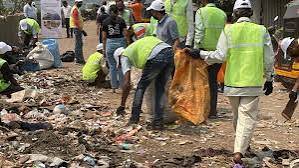Community Clean-Up Initiatives: A Collective Effort for Our Rivers
Local communities are taking charge in the fight against pollution, organizing clean-up campaigns along rivers to protect their environments and raise awareness about sustainability. These grassroots initiatives reflect a growing concern over the impact of pollution on ecosystems, wildlife, and community health. With rivers being vital resources for drinking water, recreation, and biodiversity, communities recognize the importance of preserving these natural assets.
In recent years, many towns and cities have witnessed a surge in organized clean-up events, often driven by local non-profit organizations, schools, and concerned citizens. These campaigns bring together volunteers of all ages, fostering a sense of community and collective responsibility. Participants often include families, students, and local businesses, each contributing their time and effort to improve their surroundings. The sense of camaraderie created during these events not only helps in cleaning up the rivers but also strengthens community bonds.
The objectives of these clean-up campaigns extend beyond just removing trash. They serve as educational platforms where participants learn about the harmful effects of pollution on aquatic life and ecosystems. Organizers often provide information on sustainable practices and encourage participants to adopt environmentally friendly habits in their daily lives. This educational aspect is crucial, as it empowers individuals to make informed choices that can lead to long-term positive changes in their communities.
Social media has played a significant role in promoting these initiatives, allowing communities to share their successes and inspire others to take action. Hashtags like #RiverCleanup and #ProtectOurRivers are trending, making it easier for individuals and organizations to connect and collaborate. The visibility of these campaigns encourages more people to join, creating a ripple effect of environmental activism.
Moreover, the positive impact of these clean-up campaigns is often felt well beyond the immediate results. Cleaner rivers enhance the quality of life for local residents, providing safer recreational spaces and boosting local tourism. Additionally, these efforts can lead to greater community pride and engagement, as residents come together to address shared challenges.
In conclusion, community-led clean-up campaigns along rivers are vital initiatives that combat pollution and foster environmental awareness. They unite individuals around a common goal, educate participants about sustainability, and promote a sense of responsibility for protecting the planet. As these efforts continue to grow, they pave the way for healthier ecosystems and vibrant communities, demonstrating the power of collective action.



No comments yet
Be the first to share your thoughts!